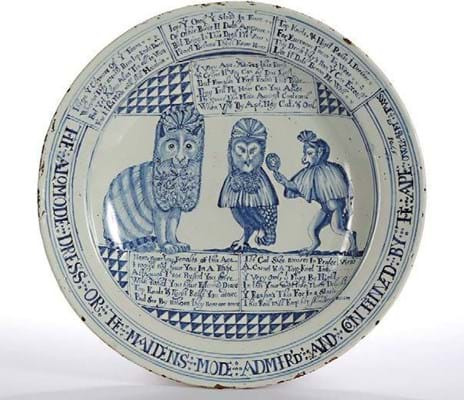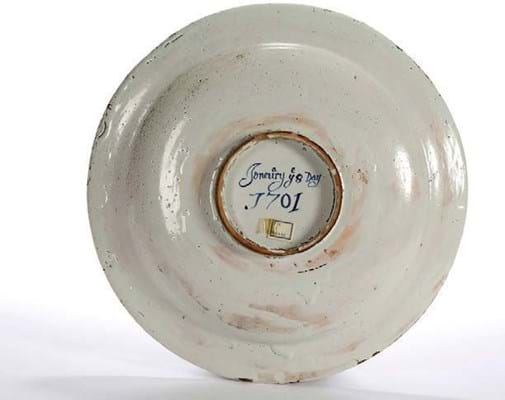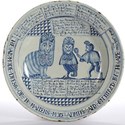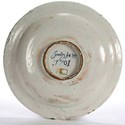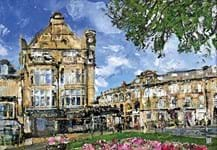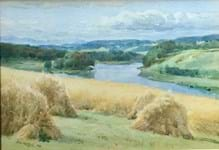This lively blue-and-white English delft dish from Brislington is priced in six figures from ceramics specialist E&H Manners. The dealer considers it “one of the most remarkable pieces of English delft to have been on the market in recent years”.
The piece, which carries the date 1701, is decorated with imagery and text copied from The Alomode Dress or The Maidens Mode Admir’d, a satirical undated broadsheet on the vanities and shortcomings of aspiring, foolish and insalubrious members of society who imitated modern fashions. At the time ‘cat’ was slang for prostitute, owls were considered foolish, and apes vain and undiscriminating. “This is a particularly exceptional example for the amount of detail and sociological interest it carries,” notes E&H Manners.
The gallery knows of only one other dish decorated after the same broadsheet: a famous example from the Glaisher Collection in the Fitzwilliam Museum in Cambridge, dated 1688 and considered to have been made in Brislington near Bristol by the same hand.
Satirical subjects in general are extremely rare on English delftware of this period, far less common than those depicting chinoiseries, religious and classical scenes or popular figures of the day.


